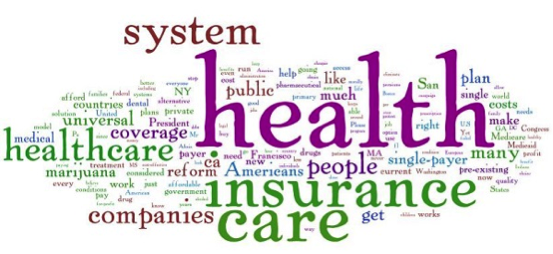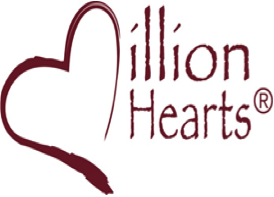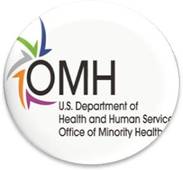Resources

CMS and CMS OMH offer information and resources to help extend the reach of CMS’ programs while improving the health and wellness of individuals of all backgrounds, as well as their caregivers and employers. This page features information that you can use to learn about different offices and assistance they can offer you.
HHS Office of Minority Health and Establishment of Federal Offices of Minority Health
The Department of Health and Human Services Office of Minority Health was created in 1986 and is one of the most significant outcomes of the 1985 Secretary’s Task Force Report on Black and Minority Health. The Office is dedicated to improving the health of racial and ethnic minority population through the development of health policies and programs that will help eliminate health disparities. OMH was reauthorized by the Patient Protection and Affordable Care Act (ACA) of 2010. For more information on the office, visit http://minorityhealth.hhs.gov.
The Affordable Care Act required the establishment of Offices of Minority Health within HHS’ six agencies. These offices join the existing HHS Office of Minority Health and NIH National Institute on Minority Health and Health Disparities to lead and coordinate activities that improve the health of racial and ethnic minority populations. These offices include:
 Agency for Healthcare Research and Quality (AHRQ), Office of Minority Health
Agency for Healthcare Research and Quality (AHRQ), Office of Minority Health
 Centers for Disease Control and Prevention, Office of Minority Health and Health Equity (OMHHE)
Centers for Disease Control and Prevention, Office of Minority Health and Health Equity (OMHHE)
 Food and Drug Administration, Office of Minority Health (OMH)
Food and Drug Administration, Office of Minority Health (OMH)
 Health Resources and Services Administration, Office of Health Equity (OHE)
Health Resources and Services Administration, Office of Health Equity (OHE)
 National Institute on Minority Health and Health Disparities (NIMHD)
National Institute on Minority Health and Health Disparities (NIMHD)
 Substance Abuse and Mental Health Services Administration Office of Behavioral Health Equity
Substance Abuse and Mental Health Services Administration Office of Behavioral Health Equity
Regional Minority Health Consultants
The Office of Minority Health works collaboratively with the following HHS Regional Minority Health Consultants (RMHC) to help build networks of consumers and professionals working on minority health issues. Please refer to the HHS RMHC US Map to locate the RMHC in your state. For more information, please visit the HHS Office of Minority Health Resource Center (OMHRC) or call 1-800-444-6472.
State offices of Minority and Multicultural Health
Every state has a minority health or health equity office. These offices share a common goal to improve health disparities within their state. For contact information on each state's minority health office, visit the State Offices of Minority and Multicultural Health Liaison Map.
Other Partner Offices
The U.S. Department of Health and Human Services has other partner offices that focus on various research, education, advocacy and policy issues, and initiatives. Some of these offices include:
- Administration for Community Living (ACL)
- Administration on Intellectual and Development Disabilities (AIDD)
- American Indian & Alaska Native National, Regional and Local Health Boards
- Indian Health Service (IHS)
- Office of Refugee Resettlement (ORR)
- Office of Rural Health
- Administration for Children and Families (ACF)
- Office for Civil Rights (OCR)
- Office of HIV/AIDS and Infectious Disease Policy (OHAIDP)
- Office of Women's Health (OWH)
Toolkits
Toolkits aid consumers, providers and researchers with access to evidence-based tools. Featured toolkits include:
Medicare EHR Incentive Program
Since January 2011, thousands of eligible providers (EPs), eligible hospitals (EHs), and critical access hospitals (CAHs) have participated in the Medicare Electronic Health Record (EHR) Incentive Program. Many eligible for this program have yet to either register or attest to Stage 1 Meaningful Use (MU). If some providers are left behind, this may create a gap in quality, cost, and efficiency between those who have adopted and meaningfully use EHRs and those who have not. The factors influencing program participation, however, are not fully clear. Analysis of Participation in the Medicare EHR Incentive Program provides information about the population studied, research objectives, principal findings, and conclusion.
| Topics | English |
| Executive Summary: Analysis of Participation in the Medicare EHR Incentive Program | PDF (PDF) |
| Analysis of Participation in the Medicare EHR Incentive Program | PDF (PDF) |
CMS OMH Webinar
- “From Coverage to Care”: Connecting the Hispanic Community to New Opportunities for Better Health webinar hosted by CMS Office of Minority Health and the Office of Equal Employment and Civil Rights to commemorate Hispanic Heritage Month on October 15, 2014.
- On April 9, 2014, the Centers for Medicare and Medicaid Services, Office of Minority Health hosted a webinar titled Improving Health Equity for Vulnerable Populations in honor of Minority Health Month. The webinar focused on CMS’ ongoing efforts to reduce and eliminate health disparities and its work on encouraging newly insured consumers to use preventive services and primary care
Million Hearts
Heart disease and stroke are the first and fourth leading causes of death in the United States. Every year, Americans suffer more than 1.5 million heart attacks and strokes. Although most people are at risk for heart disease and stroke, racial and ethnic minorities are disproportionately affected by the disease and are less likely to receive recommended preventive services for the early identification of risk factors. Therefore, the U.S. Department of Health and Human Services has launched Million Hearts®, a national initiative to prevent 1 million heart attacks and strokes by 2017.
 Million Hearts® aims to prevent heart disease and stroke by:
Million Hearts® aims to prevent heart disease and stroke by:
• Improving access to effective care
• Improving the quality of care for the ABCS
• Focusing clinical attention on the prevention of heart disease
• and stroke
• Activating the public to lead a heart healthy lifestyle
• Improving the prescription and adherence to appropriate medications for the ABCS
The Centers for Medicare & Medicaid Services, Office of Minority Health embraces this initiative and will continuously work to support Million Hearts® within our portfolio as we strive towards reducing and eliminating health disparities across the country.
We invite you to watch the following Heart Disease PSA. Click here to find tips on healthy lifestyle choices that help to lower your risk of heart disease.
For more information, visit: http://millionhearts.hhs.gov
American Heart Month
February is American Heart Month! Check out and share our new infographics focused on heart disease prevention for consumers and health care providers.
- Consumers: A Healthy Heart = A Healthy You (PDF), Un Corazón Sano = Un Cuerpo Sano (PDF).You can reduce your risk of heart disease.
- More resources are available at:
- Health care providers: Clinicians + Hypertension Protocols = Better Outcomes (PDF). Adopting a standard protocol is associated with significant success in hypertension control.
- More resources are available at:
Follow @CMSGov on Twitter to join in the conversation.
My Brother’s Keeper initiative: Be informed and get involved
President Obama established My Brother's Keeper, or MBK, to help close the opportunity gaps faced by too many young people across our country, and by boys and young men of color in particular. The My Brother’s Keeper Task Force is releasing a report next week. This report will provide an in-depth look at state and local place-based engagement, private-sector action, and efforts made by the federal government to better shape public policy. You'll read about growing efforts across the nation to provide optimism and opportunity for all our young people. And you’ll read examples of how communities, businesses, foundations, and social enterprises are investing in what works.
In September 2014, the President also issued a challenge to cities, towns, counties and tribes across the country to become “MBK Communities.” The My Brother’s Keeper Community Challenge is a call to action to build and execute robust plans to ensure that all young people—no matter who they are, where they come from, or the circumstances into which they are born—can achieve their full potential. More than 60 superintendents of our country's largest urban school districts have also pledged to develop new strategies to help meet the objectives of MBK. And nearly 200 mayors, tribal leaders, and county executives — from 43 states and Washington, D.C. — have accepted the MBK Community Challenge and committed to improve life outcomes for young people at the local level.
To know more about MBK, available resources, and read the upcoming report visit http://www.whitehouse.gov/my-brothers-keeper. To get involved in the MBK Community Challenge visit http://www.mbkchallenge.org/.
Disclaimer
The CMS Office of Minority Health works closely with other Federal agencies, state, tribal and local governments, academic institutions, and private organizations that are committed to improving health equity and eliminating health disparities. This page features information about these stakeholders and their work. Please note that the links on this page may lead to non-Federal websites, but they provide information that is consistent with the intended purpose of the CMS OMH website. CMS OMH cannot attest to the accuracy of information on a non-Federal website and linking to them does not constitute an endorsement by CMS OMH or any of its employees of the sponsors or the information and products presented on the websites.
